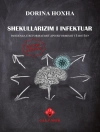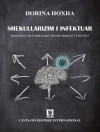When you look at the world through the lens of upfront carbon, everything changes
The astonishing upfront carbon of everyday objects from coffee cups to heat pumps, and why electric bikes, not electric cars, are the answer.
Think that buying an electric car or switching to a heat pump is going to save the planet? Think again.
‘Upfront carbon’ refers to all emissions involved in making your car, your home, or any other item. These invisible embodied carbon emissions matter a lot. As we weed out fossils fuels and incorporate more renewables into our energy supply, upfront carbon becomes increasingly dominant compared to operating emissions, yet it is often ignored.
By focusing on consumption rather than production, The Story of Upfront Carbon covers:
- Why we are fixated on energy efficiency, not carbon, and why this needs to change
- Why carbon calculations are so fiendishly difficult
- How the simple idea of sufficiency for individuals and whole economies is a powerful strategy to avert looming climate catastrophe
- How big-picture thinking and a systemic approach to production can help guide the transition to degrowth and an equitable, zero-carbon society.
Leavened with wit and packed with concrete strategies for minimizing the ecological footprint of transportation, agriculture, consumer goods, the built environment, and more, this highly readable and accessible guide is required reading for a world on the brink.
表中的内容
Acknowledgments
1. The Lens of Upfront Carbon
What Are Upfront Carbon Emissions and Why Are They Important?
Why We Are Fixated on Energy, Not Carbon
Carbon Takes Command
The IPCC Does Not Say We’re Doomed
OK Doomer
The Building Industry and Upfront Carbon
The Carbon Footprint of Everything
The Unbearable Heaviness of Carbon
Transparency from Shoes to Motorcycles
The Future We Want: Supply vs Demand
Dematerialization and Degrowth
Enjoy the Ride with Demand-Side Mitigation
Why Sufficiency Is the Solution
2. Strategies for Sufficiency
Materiality: Build Out of Sunshine
Ephemerality
Frugality
Simplicity
Flexibility
Circularity
Universality
Resiliency
Satiety or Enoughness
Electricity
Intermittency
Operating Efficiency
Design Efficiency
Inequality, Inequity, and Justice
3. Stuff
The Single-Use Coffee Cup
From the Two-by-Four to Mass Timber to a Block of Flats
The Block of Flats
The Folly of Foam Insulation
The Heat Pump
The Puffer Jacket
The Hamburger
The Car
The E-Cargo Bike
4. Everything Connects
A Prosperous Ascent
Conclusion
Appendix A: Cheat Sheet: A Short Guide to Sufficiency
Notes
Index
About the Author
About New Society Publishers
关于作者
Lloyd Alter is a writer, public speaker, architect, inventor, and Adjunct Professor of Sustainable Design at Toronto Metropolitan University. He has published many thousands of articles on diverse platforms such as Tree Hugger, Planet Green, and The Guardian. Lloyd is the author of Living the 1.5 Degree Lifestyle. He lives in Toronto, Ontario.










